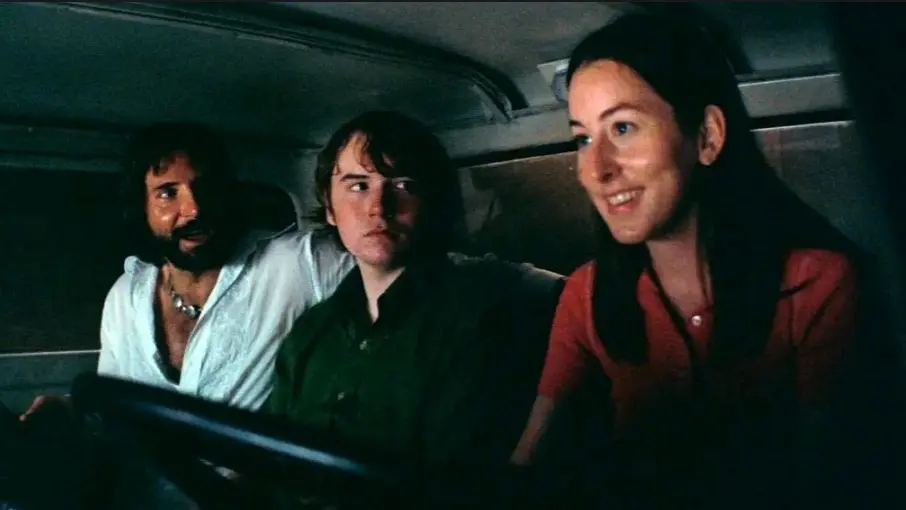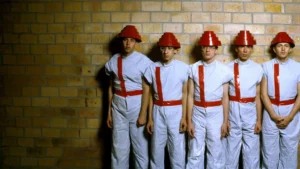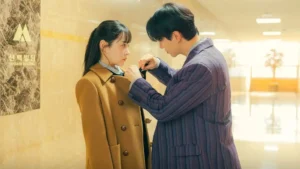Summary
Licorice Pizza is an invigorating comedy that has a surprising amount of depth that sneaks up on you.
This review of the film Licorice Pizza does not contain spoilers.
I can think of only a two directors today who can tackle almost any genre while still giving you an experience uniquely their own. Quentin Tarantino is one, and Paul Thomas Anderson is the other. His new film, Licorice Pizza, is a notably light one on the surface, a refreshing take on growing up and finding yourself in the City of Angels in the 1970s. Yet, his script has hidden depth that frighteningly sneaks up on you after you find yourself laughing at the egomaniacs they encounter, all while they attempt to carve out something for themselves and find their place in life.
The film’s title was inspired by the folk duo of Bud & Travis (who may have borrowed the title from an old Abbott and Costello routine). And in turn, that was then made the name of a record store train around the Valley in the 70s. The story revolves around the unlikely friendship of Alana (played by the steller Alana Haim who gives one of the year’s best performances), a woman in her mid-20’s that works as a photographer’s assistant. On the job, she meets Gary (Cooper Hoffman, son of the late, great Philip Seymour Hoffman). He’s a sophomore who has a surprising amount of confidence for his age.
Gary is a child actor who has developed a crush on Alana (more on that below). When his mom Anita (Mary Elizabeth Ellis) cannot accompany him to an audition in New York, Alana is his adult chaperone—allowing them to get to know each other. From there, they both start to find themselves in transition. Gary wants to start his own business, getting into the waterbed game. (I wish they would have stuck with the title, “Soggy Bottoms”).
There, he encounters those egomaniacs we talked about before. A former hairdresser, film producer, and Barbara Streisand’s current boyfriend, Jon Peters (a hilarious Bradley Cooper). Alena gets a taste of the acting bug. She meets a Hollywood legend, Jack Holden (a fictionalized version of William Holden, played by an out of his mind Sean Penn). And she finds her passion by volunteering for a political campaign for real-life L.A. Councilman Joel Wachs (Ben Safdie).
Mr. Anderson casting newcomers (and yes, one coming from an impressive pedigree) while filling up supporting characters with big names was a brilliant move. It allows Cooper and Haim to shine, and ultimately, a couple of star-making performances. He captures the spirit of a time in the transition while never letting go of the possibilities experienced by young people. The entire experience is an energetic and gleefully enjoyable ride that captures time and place beautifully. Yet, themes under the surface arise organically and unexpectedly that give Mr. Anderson’s film depth.
And that’s where Licorice Pizza excels. Even within its controversies.
The script by Mr. Anderson has two issues that have been a hot topic on social media for the past two weeks. For one, there is a character who is racist and culturally insensitive to Asian culture. Played by Michael Clark Higgins, he is married to a different woman of Asian descent in practically every scene. The joke is written on him as he talks to his wives in an offensive accent in English. He then answers the question raised by Alana and Gary, admitting he doesn’t speak the language. You’ll notice they don’t laugh at him and look at him dumbfounded.
The other is that Alana laughs off Gary’s flirtations because he is 15 and she is 25. Yet, she still shows up for the date he set up if she changes her mind. Yes, it is a highly questionable choice since the California consent law in the 1970s was 18. Nothing happens, and they develop a friendship, but Alana does “flash” Gary later.
While the script is very loosely based on American film and television producer Gary Goetzman, Mr. Anderson is not asking you to support or accept these situations. He is just asking you to recognize that they existed without much afterthought during that time. The double standard of an older woman dating a teenager may garner a “that-a-boy” from a father. Yet, it would not be very comforting if those roles had been reversed. Like Higgins’ Jerry Frick, he is a product of his time. A rich white man shows an incredible lack of cultural insensitivity and is oblivious to his deeply rooted racism.
All of these scenes have a purpose, like others in the film. The 70s was an era that evolved from communitarianism that gave birth to individualism. Where at-risk and marginalized groups began to advocate for themselves. Where mainstream, middle-class, white “ideals” of putting the community first. While at the same time ignoring that they had been the direct beneficiaries. At this time, feminism began to take hold to counter male toxicity. Theoretical social theories of oppression began to pop up (hello, critical race theory). Oppressed groups had to have a “beard” to cover their sexuality. It was the only way to achieve their dreams or do their damn jobs.
That’s what makes Licorice Pizza incredibly entertaining, fresh, and relevant. It was an American rebirth of individualism. While still exploring heavy themes in a new way for the legendary director. He uses these young people as the lens to view that change while still capturing the youth of growing up in 70s Los Angeles. His film is an invigorating comedy that takes you to another time and place.




